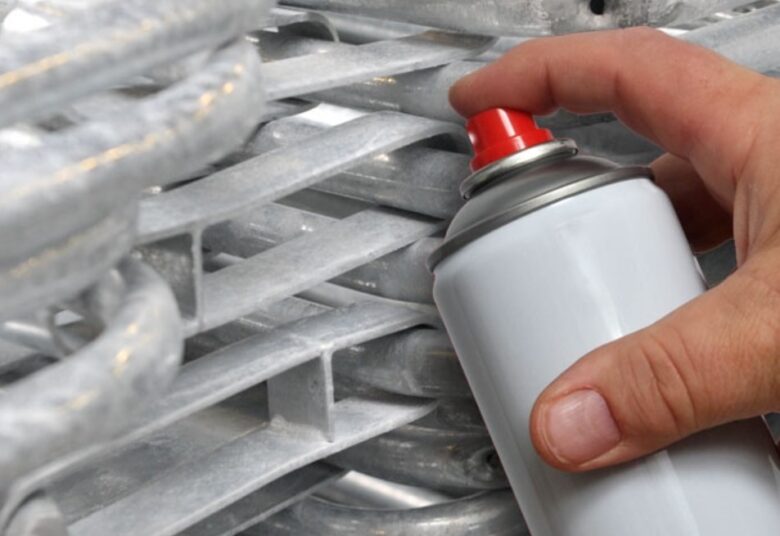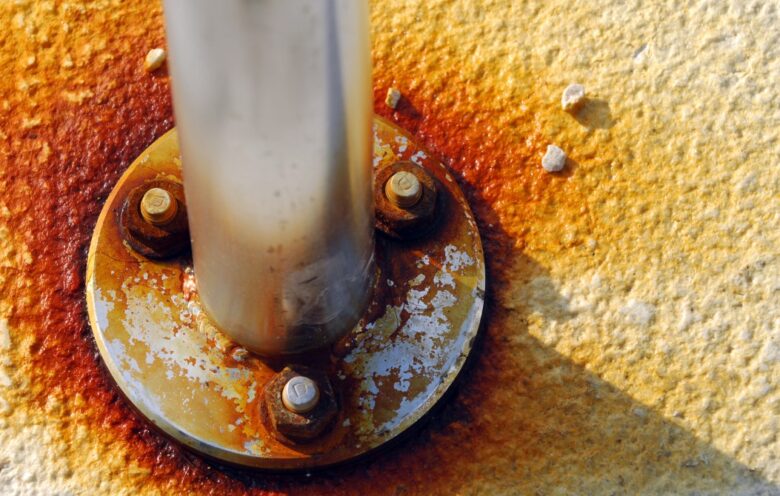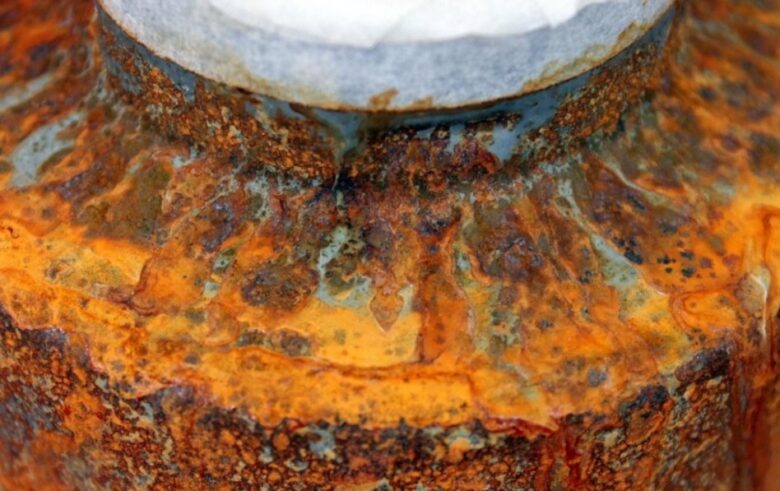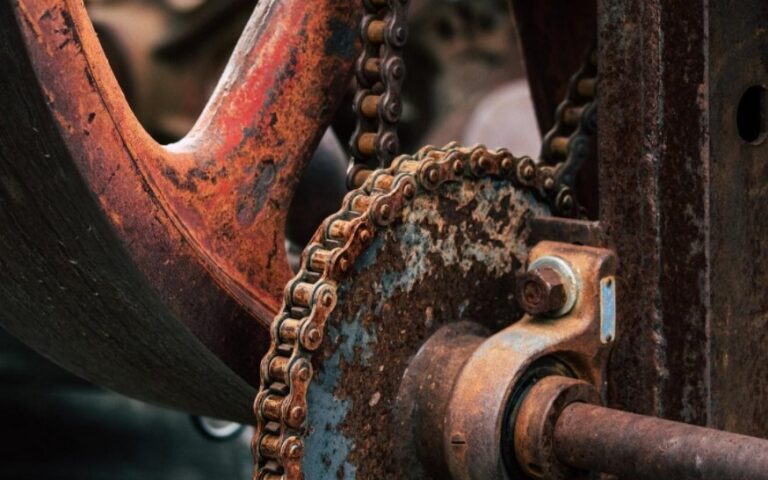Corrosion is a naturally produced phenomenon that occurs when a material (typically a metal) deteriorates due to a chemical reaction with its surroundings. Like other natural disasters like earthquakes and extreme weather, rust may cause harmful and costly damage to anything from automobiles, household appliances, and water and sewage systems to pipes, bridges, and public structures.
Unlike weather-related calamities, however, there are tried-and-true ways for preventing and controlling rust that can decrease or eliminate its negative effect on the economy, public safety, and the environment. Corrosion control and prevention is a complicated discipline, made more so because it can take many distinct forms and is influenced by a variety of external influences.
Rust experts must understand the impact of environmental conditions like soil resistivity, humidity, and saltwater exposure on various materials; the type of product to be processed, handled, or transferred; the structure’s or component’s required lifetime; appropriate mitigation methods; and the kind of product to be processed, operated, or transported.
However, having a complete understanding of the many types of corrosion, the processes implicated, how to identify them, and why and how they occur is the first step in efficient corrosion control. Rust is just the natural deterioration that occurs when a surface reacts with its surroundings. Different surfaces, surroundings, and other variables add to the equation’s intricacy.
What is an anti-rust coating, and how does it work?

Applying the suitable anti-rust coating on steel provides crucial protection against the degrading effects of water exposure. Such rust-producing exposure can severely impact the functioning of numerous components and leave the door open to the risk of a crucial equipment breakdown at some point. Anti-rust and various types of anti-corrosion coatings for metals and steel are widely available and practical in even the harshest industrial conditions.
What are the benefits of corrosion protection?
Corrosion can end up damaging the economy by increasing costs. These expenses account for a significant portion of the country’s GDP. It is one of the highest single costs in the US economy, accounting for 7.2 percent of GDP. It costs the petrochemical and pharmaceutical industries roughly $1.9 billion per year. This process is caused by exposure to the elements, substances used in manufacturing, and normal wear and tear.
Anti-corrosion coatings have proven effective in preventing industrial materials from deteriorating owing to corrosion. Epoxy coatings, zinc primers, urethane coatings, enamels, abrasive blasting, thermal-cured thin film, and other advanced anti-corrosion coatings assist environment-resistant, build wear-resistant, and high-temperature coatings. Check here if you want to find out more information.
The proper coating is especially important for industries since it will provide structures with higher resistance and strength. For example, bridges, buildings, and other large structures are all made with lots of iron, and it is essential to provide them with proper protection since there is an impact on them every day, especially from weather and UV radiation. The corrosion can lead to deficiencies related to both physical appearance and technical features.
The risks of corrosion are not related only to metal structures since they could affect the health of people as well. Corrosion has a lot of hazardous ingredients that could lead to serious health issues. That is the main reason why water pipes must be properly protected. Getting an injury by cutting on some corroded surface will require you to immediately visit the hospital and get proper treatment. Ingesting the corrosive materials can lead to even more serious issues.
Adding Metallic Layers is the Best Choice

When it comes to the process that can be used to protect the structures from corrosion, adding metallic layers is one of the best options. The main advantage of this solution is that you can apply it to different types of structures and metal surfaces. Also, the process of application is quite simple as well, and it required electrical and flame tools.
Besides that, the great thing is that workers don’t need too much time to learn to operate with these tools. When it comes to larger structures, there are machines available that can make this process faster, safe, and convenient. The time needed to finish the coating is shortened with the ability to use automated machines. The process requires three parts, blasting the grit, spraying, and sealing. Also, there is no need to wait for the spray to apply.
You can immediately start with the sealing process. The ingredients used in this process are aluminum and zinc, which are proven to be great protection from corrosion. Also, they offer durability and consistency and can improve the quality of the structure as well. Besides the zinc and aluminum coating, the most popular option is polyurethane, which provides excellent protection from corrosion, chemicals, physical damage, and more.
Other Efficient Methods
Besides painting and spraying, other methods can prevent corrosion and prevent issues like loss of performance and quality over time. One of those methods is alloy protection, which represents the combination of iron, carbon, and additional metal that will make the surface resistant to corrosion.
When it comes to tools that you use at work or some smaller metal pieces, the fastest and easier solution to keep them in good condition is to use oil. Also, it is important to keep them away from water and high humidity.
Rust’s negative effects

When oxygen comes into contact with iron, an oxidation reaction begins. The ensuing process generates iron oxide, which appears as an orange powder (rust) on the metal’s surface. When water and air come into contact with iron and steel, rust can form. As a result, using an anti-rust coating is critical. Certain metals possess oxidation processes that cause corrosion to proceed more slowly.
Brass, copper, and bronze, for example, develop a patina that protects the metals. Rust, on the other hand, can drastically impair the strength of structural parts made of these materials when it comes to steel and iron. Rust diminishes the thickness of metal and could even leave gaps in beam webs as well as other structural components since it takes the place of the metal itself.
Rusty parts can compromise performance, which can harm industrial processes. In some situations, the flaky powder that forms on a metal’s surface might cause undesirable friction. The formation of rust on one or both surfaces, for example, can obstruct the operation of two pieces designed to move past one another with 0 or little resistance. Furthermore, because rust lacks the magnetic force of iron, it might impair the functioning of magnetic parts.
Rust in electronics comprised of iron or iron alloys can reduce the ability of those gadgets to conduct an electric current, lowering their performance. Because of the detrimental consequences of rust, it is critical to apply the right anti-rust coating to certain iron and steel surfaces. Look for professionals who offer various coatings that prevent corrosion and protect metals from the damaging effects of chemicals.
Conclusion
Corrosion is a major deterioration issue. It’s a lot more harmful than you might believe. It can be found almost anywhere. It can be found in the pipes that deliver water to our homes; it can also be found in automobiles, railroads, and bridges. Even though corrosion has a substantial cost, we pay very little attention to it except in high-risk regions.
Transportation, utilities, and infrastructures are the segments that are most exposed to the expense of corrosion. That’s why it is important to consider coatings. Make sure to contact professionals to take care of the problem as soon as possible.
There is a long list of benefits when it comes to the protection of metal surfaces from corrosion. The main advantage is related to expenses that countries and investors can avoid since they will spend less money on repairs and maintenance. Also, there are many potential health issues if people get injured by corrosive materials.

